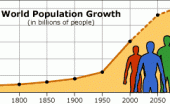Molly Minturn - My family is heartbroken to share that my father died in surgery on Monday, Feb. 10. It…
Wednesday Night #1539
Written by Diana Thebaud Nicholson // August 31, 2011 // Canada, Economy, Libya, Natural Disasters, Politics, Québec, Ron Meisels, U.S., United Nations, Wednesday Nights // 2 Comments
THE PROLOGUE
I am not worried about inflation … The risk to the global economy is not inflation, the risk is that the whole thing is going to come tumbling down
Ron Meisels will be introducing a guest recently arrived from Egypt, Raymond Bassily, who was there during throughout the revolution and its aftermath. We look forward to hearing his views not only on the current situation in his country, but the spread of the Arab Spring (summer/fall) to neighbouring countries.
On the eve of September, there is a sense of invigoration and new beginnings characteristic of the start of the academic year and presumably the return of cottagers to the city with renewed focus on their professional lives. Spring Cleaning is the traditional term, but we prefer to think of the advent of autumn as the time of new brooms. Events of the past week would seem to bear out this hypothesis.
Certainly there will be lots of brooms needed as Atlantic coast communities grapple with Irene aftermath– and presumably more in the wake of subsequent storms – we aren’t out of hurricane season yet.
The Christian Science Monitor asks Category 5 hype: Did nonstop coverage of hurricane Irene save lives? What do you think?
Slate conjures up several new words Hurriquake! Mudslami! Volnado! and, after asking How often do natural disasters coincide?, replies that it is more often than we would think. Despite the quirky headline, it’s a serious article.
There’s a new broom at the U.S. Council of Economic Advisors, Alan Krueger, and Paul Krugman approves, but asks ‘will they [the Administration] listen?”
The new broom at the IMF is showing teeth (to mix metaphors) as Christine Lagarde gave the central bankers gathered at Jackson Hole a stern lecture. We could reiterate Paul Krugman’s “but will they listen?”, however prefer to think that even central bankers might be cowed by the formidable Mme Lagarde and they might undertake some serious housecleaning.
Japan too has a new prime ministerial broom who faces a task greater than the seven maids with seven mops (sorry, wrong simile) that includes rebuilding large parts of the country after the devastation of March’s earthquake and tsunami, resolving the crisis at the crippled Fukushima nuclear power plant and trying to cure Japan’s stagnant economy.
In Libya not all the new brooms have been labelled, but the sweeping has started and will continue for many months – if not years. There have been some thoughtful analyses and recommendations (e.g. Libyan Nation Building After Qaddafi) regarding the priorities for the NTC and the role and responsibilities of the western powers in effecting the necessary changes. Let us hope “they” will all listen.
Governor Perry (shudder) and the collection of new and not-so-new brooms of the Republican Party remind us of The Sorcerer’s Apprentice. Will a Sorcerer-in-Chief come along to wave them out of existence?
Republican brooms are at work on Capitol Hill flailing away at the UN -with a bill that would require the UN to adopt a voluntary budget model, in which countries selectively choose which UN agencies to fund. [We hope Mr. Harper doesn’t get wind of this.] Note that the same bill would also end funding for Palestinian refugees and limit the use of U.S. funds only to projects directly outlined by Congress. The logic is that making agencies compete for funds would make them more efficient – why do we see a huge opportunity for unsavory lobbying?
In Canada Prime Minister Harper is in the unique position of facing three leaderless parties in opposition. The new brooms haven’t yet taken full form. As Liberal interim leader, Bob Rae has started sweeping energetically, with a rousing speech to the troops. In the wake of Jack Layton’s death, the NDP is relatively muted, but the campaign for leadership has begun with Brian Topp and Tom Mulcair “considering it”. All three parties face the need to elect a new Leader and, despite Jack’s much-lauded exhortations to restore civility to all aspects of the political process, we can expect a certain amount of public squabbling if not internecine warfare.
Although not necessarily in the new broom category, Quebec offers a glimmer of transparency and accountability with a new report Succès et échecs québécois on sustainable development. What a nice change from the intransigence of Transports Québec.
« La brique de 118 pages s’appelle «Indicateurs de suivi de la stratégie gouvernementale de développement durable 2008-2013». … Wow, chers lecteurs, quelle mine de renseignements! La recherche déborde largement des questions strictement environnementales et brosse un tableau remarquable de points forts et de points faibles qui influencent directement la qualité de vie des Québécois. »
Off topic and deadly serious is the Vanity Fair exposé of the national security nightmare Enter the Cyber-Dragon that details how Chinese hackers have compromised everything from industrial secrets to the defense secretary’s computer system. Michael Joseph Gross has an exclusive exposé of a national-security nightmare.
Always interested in the well-being of our Wednesday Nighters, we call to your attention that Chocolate may be good for heart health, but before you rush to stock up on all your favorite delicacies, doctors warn that chocolate, if not consumed in moderation, can have other effects that do nothing to improve your overall health. Sort of like red wine.
And in conclusion this trivia item forwarded by Terry Jones: The strange history of the sunflower – wonderful pictures and an interesting trade history




2 Comments on "Wednesday Night #1539"
That chocolate study, as reported by the popular press, may help people to justify eating chocolate [I don’t need such justification; it tastes good!] but the conclusion may be wrong.
Consider this. It was not an experiment or randomized trial but an analysis of other studies. From 4576 references only seven studies were selected [based on their criteria]. None of those studies was a randomised trial. Large variation was observed between these seven studies for measurement of chocolate consumption, type of chocolate consumed [milk or dark], methods, and outcomes evaluated. So how can we conclude anything?
It happens that five of the seven studies reported a beneficial association between higher levels of chocolate consumption and the risk of cardiometabolic disorders and that’s what the authors focused on. However a casual glance at the chocolate section of my supermarket suggests that only relatively affluent customers are likely to indulge. Is there an association between socio-economic level and cardiovascular disease [the answer is ‘yes’]; maybe that explains the authors’ finding.
Cheers
David
Here is the video I referred to tonight.
It is well worth watching about how the media within 24 hours switched from the real problem of the earthquake and tsunami to the nuclear incident.
The former killed 16,447, missing 4787 and injured 5888.
Radition from the Fukushima plant: dead = 0, missing = 0, injured = 0.